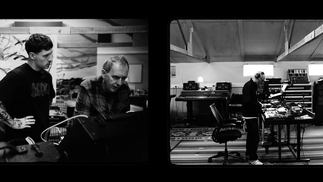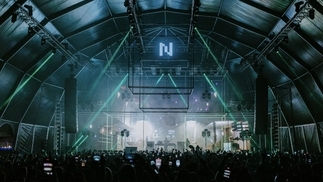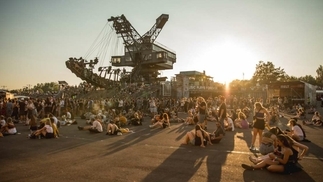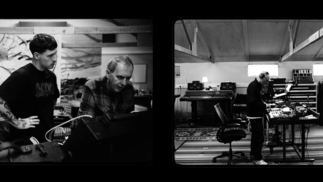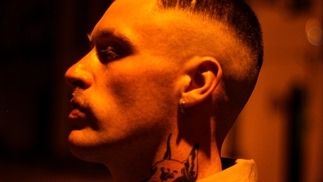These are the artists to watch in 2019
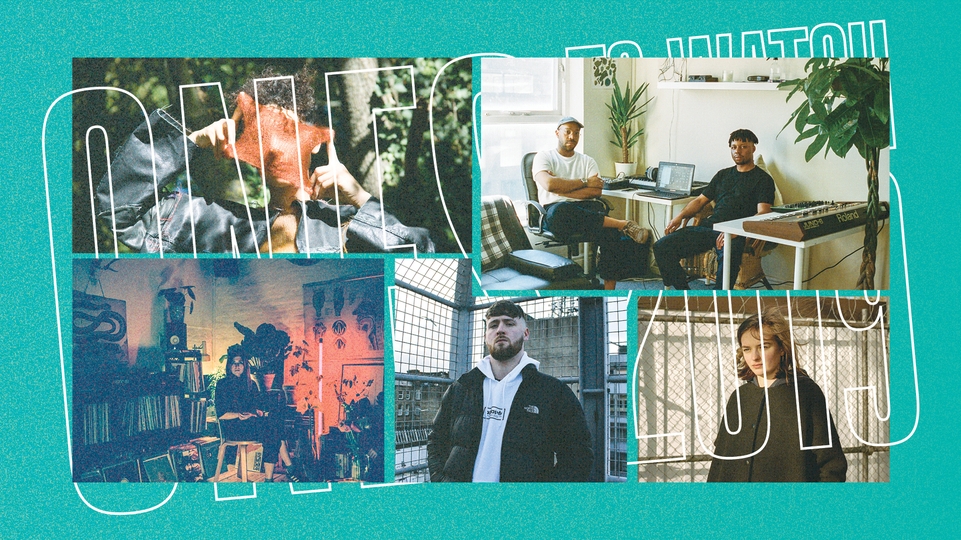
Having laid the groundwork last year, here are the five essential acts set to make 2019 their own...

KETTAMA (from Galway, Ireland)
Key tunes: 'Body', 'Kilt', 'Raw Cuts'
For fans of: DJ Haus, Mall Grab, Lone
Evan Campbell talks at about a hundred miles per hour. Maybe it’s because he’s excited. He has every right to be. As Kettama, things are hotting up for the 21-year-old Galway-born producer. After a debut EP on New York’s Homage imprint, and another upcoming on Bristol’s revered Shall Not Fade, he’s snared fans in Mall Grab and The Black Madonna, who are currently rinsing his sturdy, rave-flecked house music. “I just started making songs because I wanted to,” he says. “Not to become a big DJ, or get recognition, I just wanted to put it out there.”
Indeed, things started humbly. He’d throw ‘pre-drinks’ parties at his digs in Galway, where he’d invite mates down for a drink or two, and he’d bang out tunes before heading to either the Carbon club or Electric in the city. Through word of mouth, local promoters who he’d been pestering for gigs began to take notice. “One of the promoters at Carbon, I’d been tugging his toe for months to try and get my foot inside the place, texted me eight hours before opening, and said, ‘You’re playing tonight, all night, four hours on CDJs’. I’d never played on CDJs, just a controller. But I was like, ‘OK’.”
After early dabblings in techno, the dusty sounds of Mall Grab and DJ Seinfeld saw him digging back to Todd Edwards and Kerri Chandler (discovering the classic Grant Nelson mix of Edwards’ ‘Saved My Life’ remains a formative moment), and he was hooked on house. A brief stint at college to study quantity surveying “didn’t click”, but luckily, a residency evolved at Carbon instead, and then another in Dublin, and other gigs began turning up around Ireland. Then out of the blue, after putting some of his tracks up on SoundCloud, he got an unexpected message from China, where a promoter wanted to book him for a three-day tour. “That was the turning moment,” he says. “I thought, ‘If someone’s willing to book me to come all the way to China, my first gig ever out of the country, then my music must be OK’. No one believed it at the time. My parents, they’re cautious people, and they couldn’t believe someone was paying me to go over there. But once I was there, the promoter was just a gentleman. It’s something I’ll never forget.”
When he got back, things began to galvanise. He’d given some tracks to Mall Grab on a USB at an after-party when he’d last played in Galway some months before, never thinking for a moment he’d play them. “It was after a party at my house, 6am, everyone’s asleep, and I go on IOM (the Identification of Music group page on Facebook), and there’s a post of him playing my track, ‘Body’. I’m jumping out of my chair going insane. People were going crazy over it.” Ryan Clover from Homage got in touch soon after, and ‘Body’ was unleashed last summer. He invited him over, and the pair hung out in Brooklyn, hit the Bossa Nova Civic Club in Bushwick, as well as the revered Lot Radio. His EP for Shall Not Fade will arrive this month, ushering in what will likely be another key year. “I still can’t even take it in,” he says. “It’s just mad.” Better get used to it. BEN ARNOLD

SOLID BLAKE (from Copenhagen via Glasgow)
Key tunes: 'Warp Room', 'Tissue', 'Masha'
For fans of: Anastasia Kristensen, Dr Rubinstein, Delta Funktionen
“I would go out to nights on my own and be like, ‘I like this. Do you like this? Do you want to be pals?’” Emma Blake is remembering her earliest clubbing experiences in Glasgow, aged just 15. She took a similar approach when moving to Copenhagen years later to read a Masters in Cognitions and Communication, and soon found some like-minded souls with whom she started the Apeiron Crew trio. Emma, 28, is a little under the weather, as she adjusts to the sub zero temperatures of winter in her adopted home. “It doesn’t feel completely alien,” she says, adding that she likes the cold, but doesn’t miss “the sideways rain that you get in Glasgow”. She currently spends a couple of days a week working for the industrial design studio behind AIAIAI headphones, which means she can be more choosy about DJ gigs, and also gives her a stronger footing, as British nationals abroad head into uncertain post-Brexit waters.
You might not guess from her uncompromising techno, but Emma is a bright and cheery character. Her alias is a nod to the lead character in famous computer game series Metal Gear Solid, and she has always been obsessed with music. Initially she listened to punk bands, before discovering electronic music, but never thought about studying it formally. “I always thought it was something you couldn’t do or get involved in,” she says, instead doing a degree in Philosophy. “So [music] had to reveal itself to me before I started to pursue it properly.” A big step in that direction was getting involved with Glasgow’s community station Sub City Radio. Despite insistence from friends, she was “too shy” to ever do her own show, but helped with events, did press and engineered for other hosts. She feels she learned a lot by watching other people play, and though she dabbled privately, it wasn’t until she moved to Copenhagen, met Danish natives Sara Svanholm and Simone Øster, and formed Apeiron Crew, that she first played out. Next to working in a record store, that kept her busy, and allowed her to hone her craft for a few years. ”I still felt out of my depth,” she laughs with a warm Scottish accent, “but not so much that I couldn’t run a party or understand the principles of DJing.”
The last 12 months or so have seen her take more and more solo gigs. Her sound is rooted in techno and electro, but veers from gritty, dark and industrial to more fluid and serene. In the studio, she recognises she is “slightly moodier”, as her excellent ‘Warp Room EP’ on Seilscheibenpfeiler proved across four tracks of corrugated machine-funk and crisp drum programming. That came after the ‘Masha’ track, a “big, daft spectacle” written for her own sets but snapped up, much to Emma’s disbelief, by Modeselektor for their ‘Modeselektion Vol 04’. A graduate of the Red Bull Music Academy in Berlin, Emma credits her friend and Token Records regular Ctrls as being a real mentor when it comes to production. The pair have also played live as Historical Repeater, and brought grimy vocals to steely grooves. More is planned, while she’s also intent on perfecting her own new live show in 2019.
“These status signifiers — the releases, and playing places I could only dream of — having achieved them doesn’t really last in your memory that long. It’s like, ‘OK, that wasn’t life changing’. But the most important thing for me is making more music, doing more cool shows, and having fun with people I meet.” KRISTAN CARYL
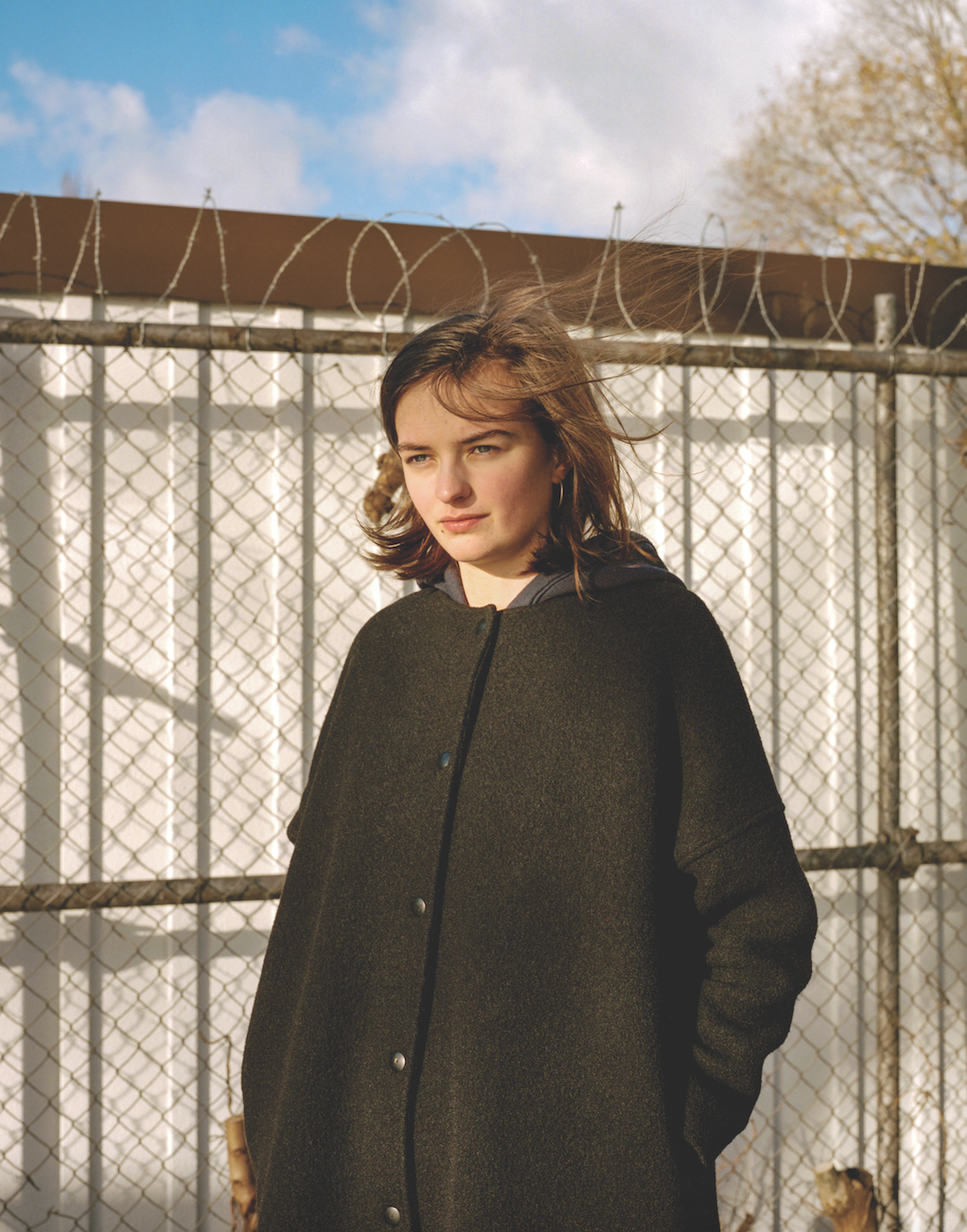
UPSAMMY (from Amsterdam, The Netherlands)
Key tunes: 'Vacate Or Annihilate', 'Words R Inert', '09-06'
For fans of: Objekt, Pangaea, Skee Mask
At the start of 2018, few outside of The Netherlands knew the name upsammy. Fast-forward to the end of the year and the Amsterdam-based artist is one of the most exciting prospects in electronic music. Alongside a trio of fascinating releases on Whities, Die Orakel and Nous’klaer Audio, upsammy has played wide-reaching DJ sets through a non-stop schedule of gigs across some of Europe’s most revered clubs. “2018 has been pretty amazing and hectic — full of meeting new people and doing stuff out of my comfort zone,” she tells DJ Mag over the phone. “I’ve learned a lot through this. It does feel like it happened very quickly, but in a way it’s also a slow process that started from when I was 15. And I don’t think all of it as ‘happened’. There is so much more for me to explore and become better at.”
Real name Thessa Torsing, upsammy’s career as an artist has begun at a time when genres are fragmenting and cross-pollinating more than ever before. And her sound is the perfect example of this. Impossible to pinpoint, it takes in elements of IDM, breakbeat, UK techno, electro and more, with the only overarching feature that her tracks are entirely unconventional rhythmically. ‘Vacate Or Annihilate’ is the most obvious representation of a club track from her, but it’s on ‘Words R Inert’ that she really found her sound. “On a lot of my tracks the drums can sound a bit electric, but at the same time organic, moving, dynamic or just weird,” she explains of that sound. “All sorts of genres merge in my music. This is the same with my DJ sets. There are so many types of music that I enjoy, why would I commit to a single genre? I’m quite capricious by nature, so I would be bored within two months if I did.”
Many know upsammy as a resident at respected Amsterdam club De School, where she has played regularly this year, and quickly become a firm crowd favourite. “I discovered my sound at De School,” she enthuses of the venue. “I don’t know why but the place always stimulates me to try something new, and not get comfortable with something for too long. I still learn a lot when I play there.” A product of the electronic music scene in Amsterdam, which has been perpetually growing in terms of size and influence in recent years, she adds that the city has also helped inform her output as an artist. “Amsterdam is such a fertile ground because there is a place for every type of music,” she continues. “It’s not all about one sound. And there definitely is a professional mindset. Amsterdam is such a small city. But still we are creating enough space for everyone to do their thing.”
2019 will see Upsammy launch her new live show, which will explore the more ambient side of her sound, as well as build on her already busy touring schedule of this year. “I’ve had moments where people were freaked out and did not know how to dance to a certain tune,” she reflects on 2018. “People can become awkward when it’s not a groove you all dance to in the same way. But for me this is an exciting moment on the dancefloor. When it does happen that everyone dances to a weird tune, all in their own unique way, it makes me so happy.” ROB MCCALLUM

SPACE AFRIKA (from Manchester)
Key tunes: 'The Sudden Walk', 'sd/tl', 'Oread'
For fans of: Huerco S., Logos, Deepchord
In Space Afrika’s resonant ambient records, what gets left out is just as important as what goes in. The Manchester duo of Josh Inyang and Josh Reidy make near-beatless synth-scapes that radiate unearthly light, where residues of various styles of dance music echo their influence in-between the wide-open spaces. Their new album, ‘Somewhere Decent To Live’ on Sferic Records, has a disarming power, achieved with minimal ingredients. On the track ‘sd/tl’, 808 bass booms and panoramic ambient pads swirl together, like some lost ’90s nugget from jungle artists Lemon D or Hidden Agenda. Vitally though, the breakbeats are left out, leaving a gap for contemplation. “This whole thing is very reduced,” says Josh Inyang. “There’ll be some periods when we’ve come back from a gig, after hearing this heavy four-four and these breaks, and we’ve been working on a track. We think, ‘We could put a little break in there’. It was tempting to do that at times, but every time we did, it didn’t feel correct. We felt we could be just as impactful with the bare minimum.”
In Space Afrika’s music, 2-step garage, dub techno and d&b are suggested, but not quite heard. Their sense of economy has found them a kindred spirit in DJ Mag’s December cover star Mumdance, whose free mixtape ‘Shared Meanings’ included the new track ‘After They Entered It Was Only Evident’ from the duo. “It was amazing to see him hit us up,” Inyang says. “The way that he’s put the mix together is brilliant, how he’s pieced certain bits together and identified their similarities.”
Reidy and Inyang met when they were at primary school at a sports event, and have been friends ever since. Their listening tastes, even from an early age, were alike. “My elders are Jamaican, so I was listening to dub and reggae music growing up,” Reidy says, “and then general stuff as a teenager, like hip-hop and metal.” “Our backgrounds have made us quite engaged in dub and African polyrhythms, that’s our background from our parents,” adds Inyang. When they heard grime and other forms of UK bass music, they wanted to produce themselves, and after going to study at university in Leeds and Bradford, they began to formulate the idea of Space Afrika.
Their first album was 2014’s ‘Above The Concrete / Below The Concrete’ on experimental label Where To Now? More traditional dub techno, it was nevertheless threaded with Space Afrika’s signature pads and predilection for bass. Their shift to a more ambient style came when they returned to settle in Manchester, and found that their studio sessions became a kind of therapeutic antidote to hectic daily lives. “We’d get away from all of this mayhem that we’d experienced 24/7, and put ourselves in tranquil spaces,” Inyang says. “That turned our mind-states into appreciating those quieter moments in music.”
Their latest album is dedicated to Manchester, a place that has inspired the duo, from the people they meet and music they hear at club-nights at Salford’s White Hotel, to the local acts they play on their NTS radio show. "It’s a positive place to be,” Reidy says. “There’s lots of exciting music coming out of here, lots of good projects.” Space Afrika’s next move will be as unconventional as we’ve come to expect from the duo. “We’re borderless with it,” concludes Reidy. BEN MURPHY
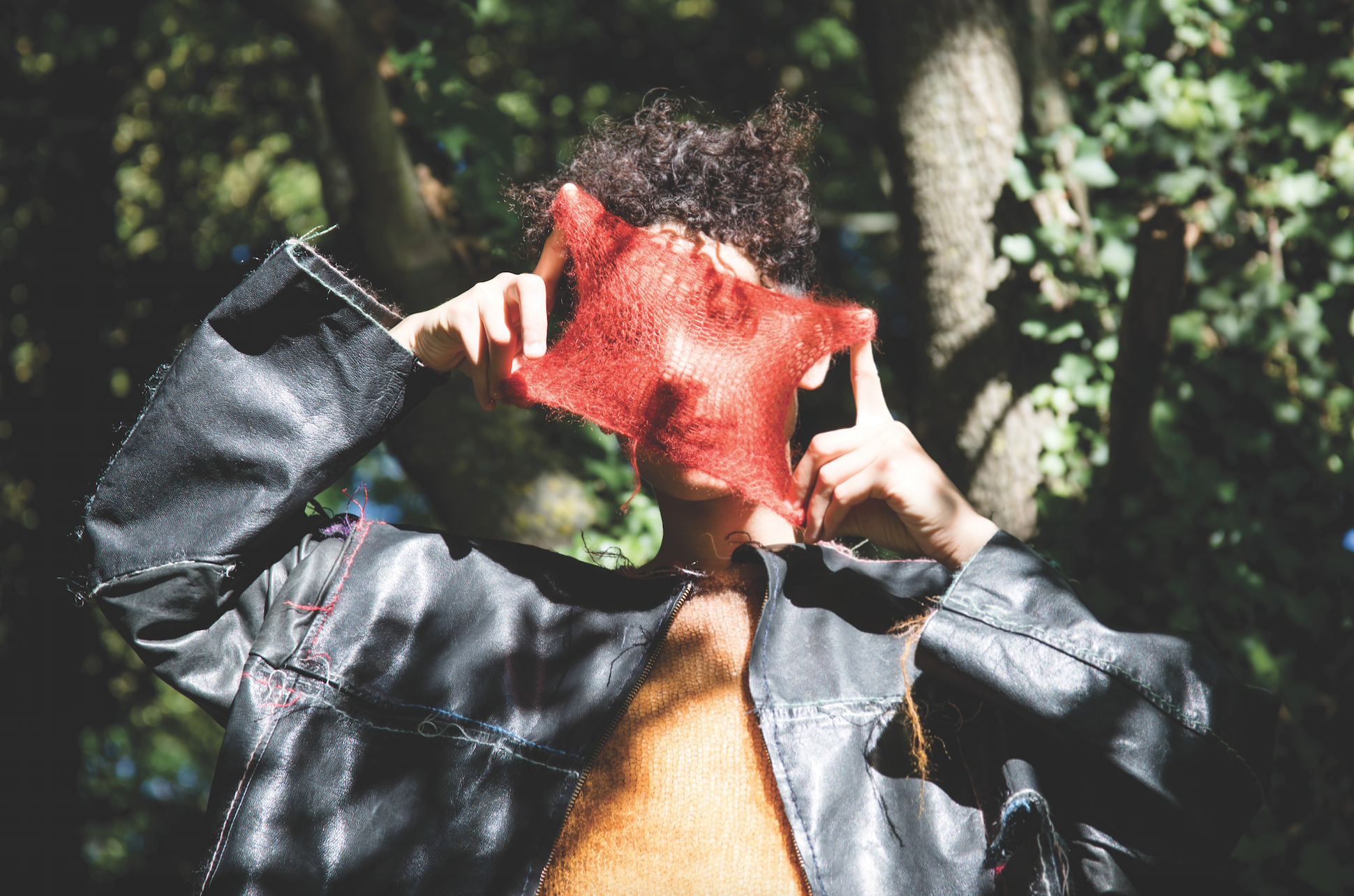
DEENA ABDELWAHED (from Tunis, Tunisia)
Key tunes: 'Ababab', 'Ken Skett', 'Al Hobb AlMouharreb'
For fans of: Lena Willikens, Rabih Beaini, Acid Arab
2018 saw Tunisian producer and DJ Deena Abdelwahed scale new heights in all her pursuits. For instance, the Toulouse-based artist locked two esteemed residencies in the first half year, as part of Berlin’s vitally progressive and influential Room 4 Resistance collective and as a regular fixture in Paris’ hallowed riverside club, Concrete. Both DJ residencies are fine representations of Abdelwahed’s outlook and purpose, with the latter coming about after she was booked for a three-hour set at the club — “and it went very well, I guess!” Concrete, as she explains, is “all about ‘love’ for electronic music and dancefloor people”. That openness, love and passion is something that’s reflected in her own DJ sets, which impeccably combine complex rhythmic workouts, experimental techno, avant-garde electronics and EBM, while often incorporating facets of Arabic and other more traditional styles to rapturous effect.
“I try to explore the avant-garde of club tracks,” she explains. “Especially experimental electronic music that is inspired by counterculture and minorities. Worldwide, but preferably from the third world.” There is nothing of the dry, cynical posturing so often seen in techno to be found here. During her sets, dancefloors move with a looseness and liberation that only the most electrifying DJs can create. And indeed, 2018 saw her bringing that distinct and unforgettable sound to more places than ever before, hitting some milestone venues and festivals along the way. “Playing in new cities and countries is really eye-opening,” she tells DJ Mag. “I have such good memories from Unsound festival, for example.”
Her pairing with the forward-thinking and sociopolitically driven Room 4 Resistance, too, is testament to Abdelwahed’s determination, with her own productions and lyrical work confronting global issues of homophobia, gender imbalance and the refugee crisis. Her debut LP ‘Khonnar’, released in November via InFiné music, with its confrontational and gripping sense of percussion and atmosphere, is far more than just a sonic triumph. “‘Khonnar’ voices my concerns on more general issues,” she explains. “Injustice, inequality of opportunity, the humiliation that citizens experience on a daily basis.” So, too, is there immense significance in the inspirations she draws from traditional Arabic music, going a considerable way to breaking down the barrier of expectation between what is considered the “norm” in electronic music and what is considered “other”. “One of the objectives of why I wanted to compose electronic music is to try and translate my sociocultural questioning: What is the cultural identity? When is it modern? Or Westernised? I would not use the word ‘fusion’, which for me implies a fairly balanced mixture of two elements. I would rather speak of a source of inspiration. I am more driven and fascinated by the vibes of experimental and club music and the creative energies of subcultures.”
One topic which Abdelwahed is passionate about is that of freedom of movement for artists. Having experienced restriction herself in the past due to visa issues (she had to cancel a show with Timedance at London’s Pickle Factory in November), and being more than familiar with numerous similar instances experienced by others, she has used the #artistswithoutvisas hashtag to further raise awareness of an issue that is being increasingly discussed in the current political climate. “It’s not about Brexit or the UK specifically,” she says. “If only artists around the world didn’t have to worry about one month of paperwork, appointments at embassies or passports held by embassies, not to mention visa fees... There are nationalities that are more privileged than others.”
Looking toward 2019 and the future, Abdelwahed has more than enough lined up to ensure that she will soon be a household name in the global club music community. A live set to accompany ‘Khonnar’ is in the works, and is set to debut at Paris’ Gaîté Lyrique in January before being taken to numerous festivals around the world including the mighty Sónar. There’s also an album remix EP set to land later in the spring. Given her evidenced tireless ethos, it’s also no surprise that she adds a noted possibility of another EP being released before the new 12 months are out. Few artists in the club music sphere are as hardworking or, indeed, as important as Deena Abdelwahed. You’d do well to get acquainted. EOIN MURRAY
